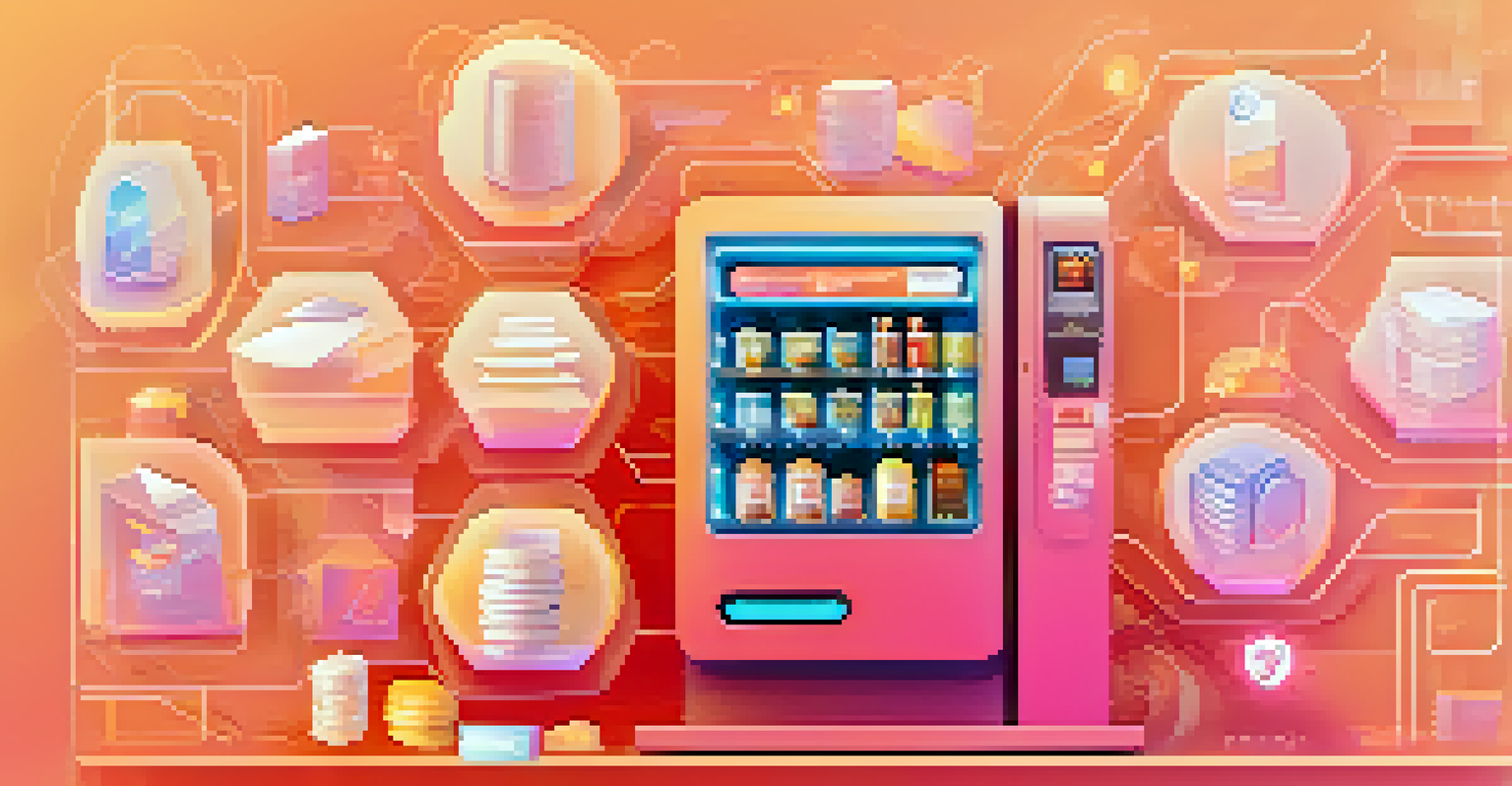How Blockchain Enhances Supplier Relationship Management

Understanding Blockchain: A Brief Overview
Blockchain is a decentralized digital ledger that records transactions across multiple computers. This technology ensures that the data is immutable, meaning once it's recorded, it cannot be altered. Imagine a shared notebook that everyone can see, but no one can erase—this is essentially how blockchain works.
Blockchain is the tech. Bitcoin is merely the first mainstream manifestation of its potential.
Each transaction or entry in the blockchain is grouped into blocks, which are then linked together in chronological order. This structure not only enhances transparency but also provides a clear audit trail. Think of it as a chain of events that everyone can reference, ensuring accountability.
In the context of supplier relationship management (SRM), blockchain offers a secure way to share information. It allows all parties involved to access the same data, fostering trust and collaboration and reducing the chances of disputes.
Enhancing Transparency in Supplier Relationships
Transparency is crucial in any supplier relationship, as it builds trust between parties. Blockchain provides a solution by allowing all stakeholders to view the same information in real-time. This means that suppliers and buyers can track shipments, payment statuses, and product information without confusion.

For example, if a supplier ships a product, both the supplier and buyer can see the shipment's progress on the blockchain. This visibility helps to eliminate misunderstandings about delivery times and product quality. It's like having a live map that shows where your package is at all times.
Blockchain Enhances Trust and Transparency
By providing a shared, immutable ledger, blockchain fosters trust and transparency between suppliers and buyers.
Moreover, transparency can reduce fraud and errors. When everyone has access to the same data, the likelihood of misinformation decreases significantly, leading to more fruitful and reliable partnerships.
Streamlining Processes with Smart Contracts
Smart contracts are self-executing contracts with the terms of the agreement directly written into code. These contracts automatically execute actions when certain conditions are met, which can streamline various processes in SRM. Imagine them as digital vending machines that dispense goods or services when the right coins are inserted.
In a world where you can be anything, be kind. Blockchain is not just a technology; it's a mindset that prioritizes transparency and trust.
In a supplier context, a smart contract could automatically release payment once goods are delivered and verified. This automation reduces delays and ensures that all parties fulfill their obligations without manual intervention.
By implementing smart contracts, businesses can reduce administrative burdens, minimize human error, and enhance efficiency. This not only saves time but also fosters stronger relationships built on reliability and promptness.
Building Trust Through Immutable Records
One of the standout features of blockchain is its immutability, meaning once data is recorded, it cannot be changed or deleted. This characteristic is particularly valuable in supplier relationships, where trust is paramount. Think of it as a historical record that remains intact, no matter what.
Because all transactions are permanent and verifiable, both suppliers and buyers can trust that the information they see is accurate. This reduces the potential for disputes and fosters a more collaborative atmosphere.
Smart Contracts Streamline Processes
Automating agreements through smart contracts reduces delays and administrative burdens in supplier relationship management.
Furthermore, having an immutable record can serve as a powerful tool during audits or compliance checks. Stakeholders can easily access verified data, ensuring that everyone is adhering to agreed-upon standards and regulations.
Facilitating Better Communication and Collaboration
Effective communication is key to any successful supplier relationship. Blockchain can facilitate this by providing a shared platform for all parties to communicate and access relevant information. It's akin to a group chat where everyone can see the same messages and updates.
With blockchain, suppliers and buyers can engage in discussions about orders, delivery schedules, and potential issues in real-time. This immediate access to information helps to resolve problems faster and foster a culture of collaboration.
By enhancing communication, blockchain not only improves relationships but also encourages innovation. When parties work together seamlessly, they can explore new ideas and strategies that benefit both sides.
Reducing Costs and Increasing Efficiency
Implementing blockchain in supplier relationship management can lead to significant cost savings. By automating processes through smart contracts and minimizing paperwork, businesses can streamline operations and reduce overhead costs. It's like converting a long, complicated recipe into a quick, efficient meal prep.
Additionally, the transparency and real-time access to data mean fewer delays and errors, which can be costly. When issues are resolved quickly and efficiently, companies can focus on growth rather than firefighting problems.
Cost Efficiency Through Automation
Implementing blockchain can lead to significant cost savings by minimizing paperwork and improving operational efficiency.
Overall, the efficiency gained through blockchain can translate into better pricing and service for customers, enhancing the business's competitive edge.
Future Trends: Blockchain in Supplier Management
As technology continues to evolve, the role of blockchain in supplier relationship management is expected to grow. We can anticipate more businesses adopting this technology to stay competitive and meet consumer demand for transparency. It's like the early days of the internet, where those who embraced it first gained a significant advantage.
In the future, we may see increased integration of blockchain with other technologies, such as artificial intelligence and the Internet of Things (IoT). This convergence could lead to even more innovative solutions for managing supplier relationships.

Ultimately, the future of SRM with blockchain looks promising. Companies that invest in this technology now will likely position themselves for success in an increasingly digital marketplace.